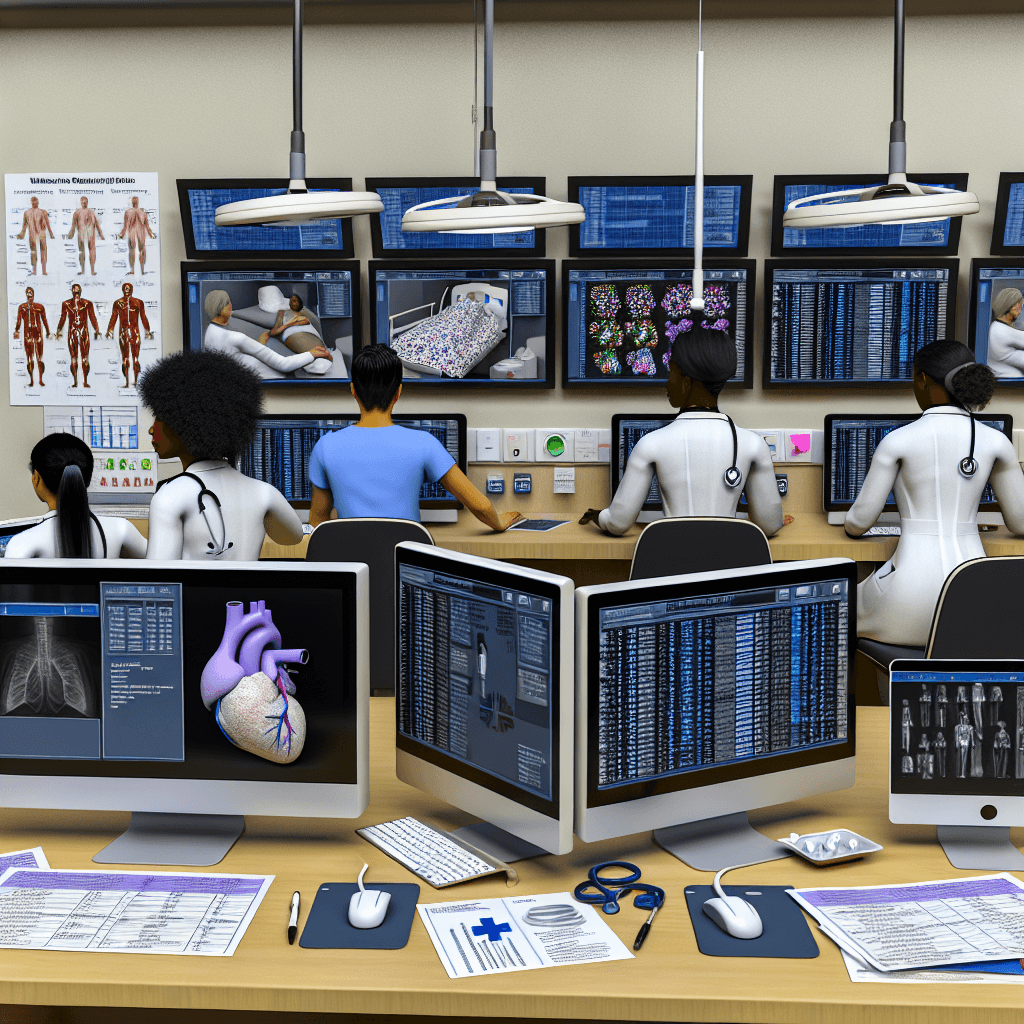Explore how Big Data revolutionizes healthcare by improving outcomes, predicting epidemics, and personalizing patient care.
Big Data in Healthcare

Table of Contents
Big Data in Healthcare: Revolutionizing Medical Care and Research

The integration of big data in healthcare has been transformative, offering unprecedented opportunities for improving patient outcomes, enhancing operational efficiency, and driving research innovations. This article explores the multifaceted impact of big data in the healthcare sector, highlighting key applications, challenges, and future prospects.
Understanding Big Data in Healthcare
Big data in healthcare refers to the vast quantities of information generated from numerous sources including electronic health records (EHRs), medical imaging, genomic sequencing, wearables, and more. This data is characterized by its volume, variety, velocity, and veracity, presenting both opportunities and challenges for healthcare professionals.
Applications of Big Data in Healthcare
Big data’s applications in healthcare are diverse, ranging from improving patient care to optimizing hospital operations. Below are some of the key areas where big data is making a significant impact:
- Predictive Analytics: By analyzing historical and real-time data, healthcare providers can identify patients at high risk of certain diseases and intervene earlier, potentially saving lives.
- Personalized Medicine: Big data enables the analysis of patient genetics and lifestyle, allowing for tailored treatment plans that significantly improve treatment outcomes.
- Operational Efficiency: Hospitals use big data to optimize everything from inventory management to staffing schedules, reducing costs and improving service delivery.
- Medical Research: Researchers utilize big data to uncover trends, improve clinical trials, and accelerate the discovery of new treatments and therapies.
Case Studies Demonstrating the Impact of Big Data
Several real-world examples illustrate the transformative power of big data in healthcare:
- Reducing Hospital Readmissions: Using predictive analytics, healthcare systems like the University of Pennsylvania Health System have developed algorithms that predict patient readmission risks with high accuracy. This allows hospitals to provide targeted interventions to high-risk patients.
- Enhancing Cancer Treatment: The Molecular Taxonomy of Breast Cancer International Consortium (METABRIC) has been using big data to study the genetic profiles of breast cancer, leading to more precise and effective treatment strategies.
- Controlling Disease Outbreaks: During the COVID-19 pandemic, big data played a crucial role in tracking infection rates, modeling disease spread, and informing public health decisions.
Challenges and Ethical Considerations
Despite its benefits, the use of big data in healthcare comes with significant challenges:
- Data Privacy and Security: The handling of sensitive patient data raises concerns about privacy breaches and data theft.
- Data Quality and Integration: Collecting high-quality, standardized data from diverse sources remains a challenge.
- Ethical Use of Data: There are ongoing debates about the ethical implications of using patient data for research without explicit consent.
Addressing these challenges requires robust legal frameworks, advanced security protocols, and clear ethical guidelines to ensure that the benefits of big data are realized without compromising patient trust or privacy.
Future Prospects of Big Data in Healthcare
The future of big data in healthcare looks promising, with several trends likely to influence its trajectory:
- Advanced Analytics Techniques: The adoption of machine learning and artificial intelligence is expected to enhance the capabilities of big data analytics, making predictions more accurate and insights more actionable.
- Interoperability Between Systems: Efforts to improve data interoperability between different healthcare systems will enhance data sharing and collaboration across providers.
- Increased Patient Engagement: As patients become more informed and involved in their healthcare, big data tools will likely play a crucial role in enabling personalized health management and decision-making.
Conclusion
Big data in healthcare has already begun to reshape the landscape of medical care and research, offering profound benefits in terms of personalized treatment, operational efficiency, and clinical discovery. However, maximizing these benefits while addressing associated challenges requires ongoing collaboration among healthcare providers, researchers, technology experts, and policymakers. As we continue to navigate these complexities, the potential of big data to revolutionize healthcare remains vast and largely untapped.
In conclusion, embracing big data with a balanced approach that considers both its potential and its pitfalls will be crucial for the future of healthcare. By doing so, we can harness the power of big data to create a more efficient, effective, and personalized healthcare system for all.








